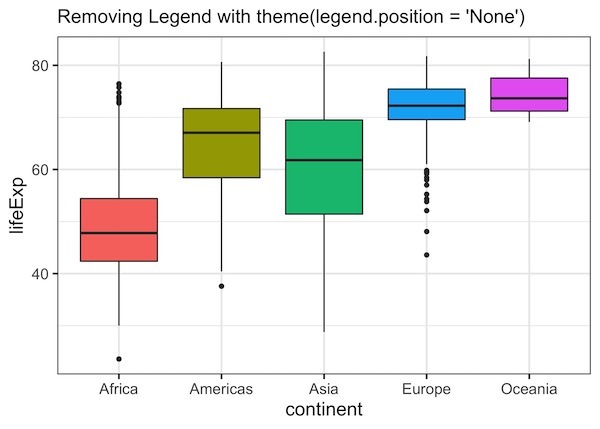In this post, we will learn how to remove a legend from a plot made with ggplot2 in R. There are a few ways to remove legend in ggplot2. We will see examples using two functions in ggplot2 to remove legend from a plot. We will first use theme() function to remove legend in ggplot2… Continue reading How to Remove Legend in ggplot2
Bar Plots with Matplotlib in Python
In this post, we will see how to make bar plots with Matplotlib in Python. We will first start with making simple bar plot in matplotlib and then see how to make bar plots ordered in ascending and descending order. Let us load Pandas and matplotlib to make bar charts in Python. Let us create… Continue reading Bar Plots with Matplotlib in Python
Area Chart with Altair in Python
In this post, we will see how to make simple area chart with Altair in Python. Area chart displays a quantitative variable like a line plot or density plot but coloring the area under the curve. In Altair, we can make area chart with mark_area() function. Let us first load Altair and the needed packages.… Continue reading Area Chart with Altair in Python
Multiple Density Plots and Coloring by Variable with ggplot2
In this tutorial, we will learn how to make multiple density plots in R using ggplot2. Making multiple density plot is useful, when you have quantitative variable and a categorical variable with multiple levels. First, we will start with making multiple overlapping density plots and then see 4 ways to customize the density plot and… Continue reading Multiple Density Plots and Coloring by Variable with ggplot2
How To Make Bubble Plot in Python with Matplotlib?
In this post, we will learn how to make bubbleplots using Matplotlib in Python. Bubble plot is a scatterplot, but with size of the data point on the scatter plot is coded by another variable. Basically, if the third variable is larger you get a bigger circle filled with a color i.e. bigger bubble and… Continue reading How To Make Bubble Plot in Python with Matplotlib?
